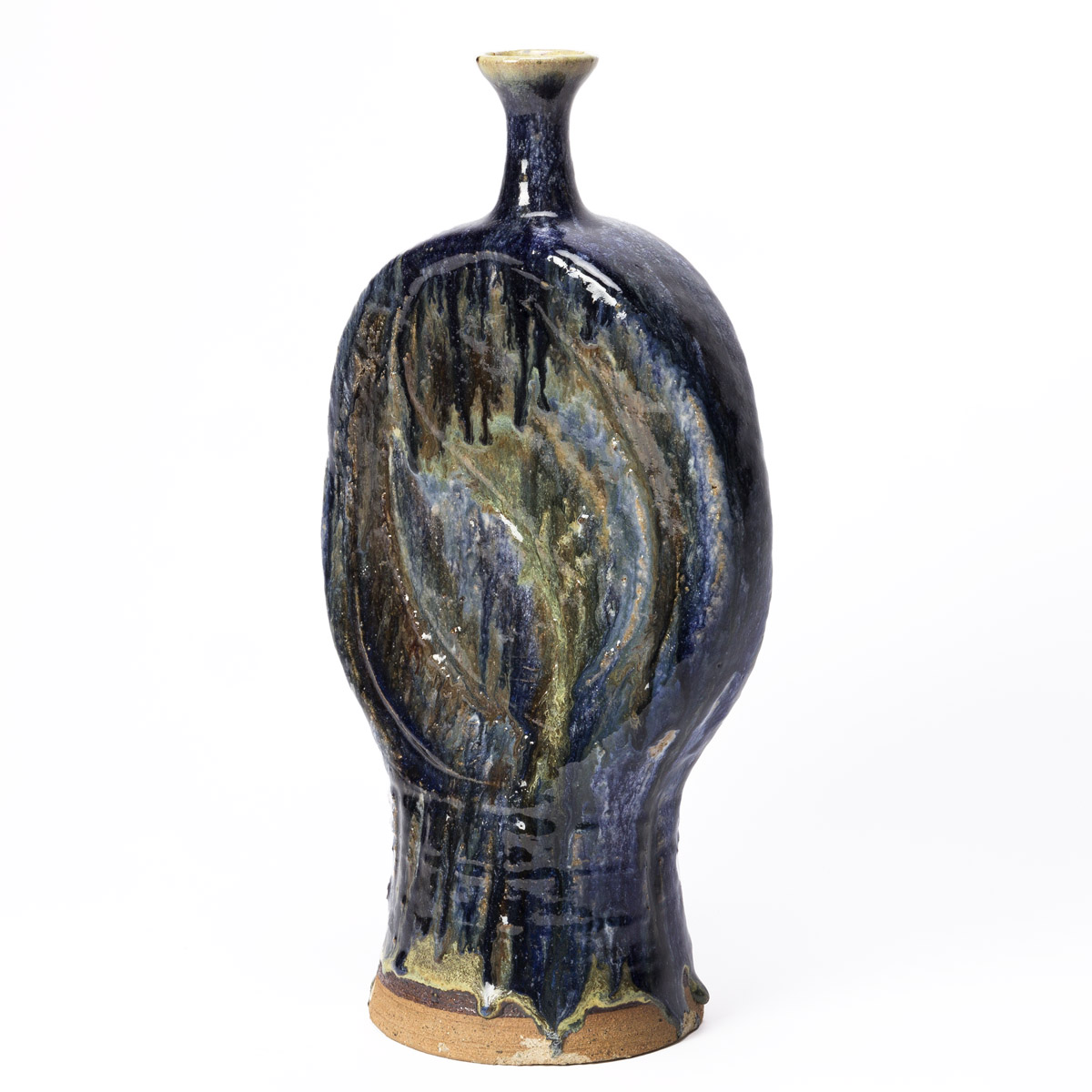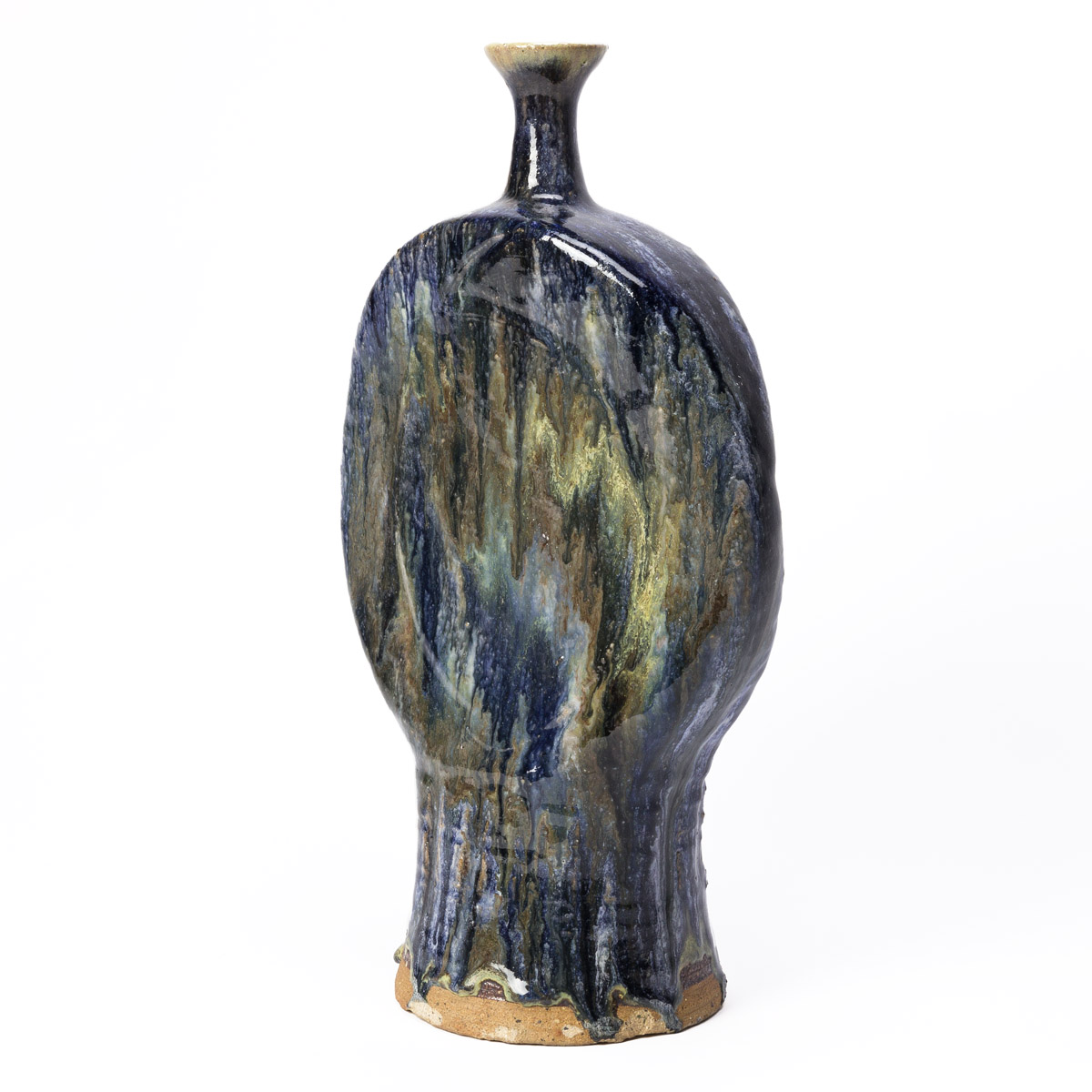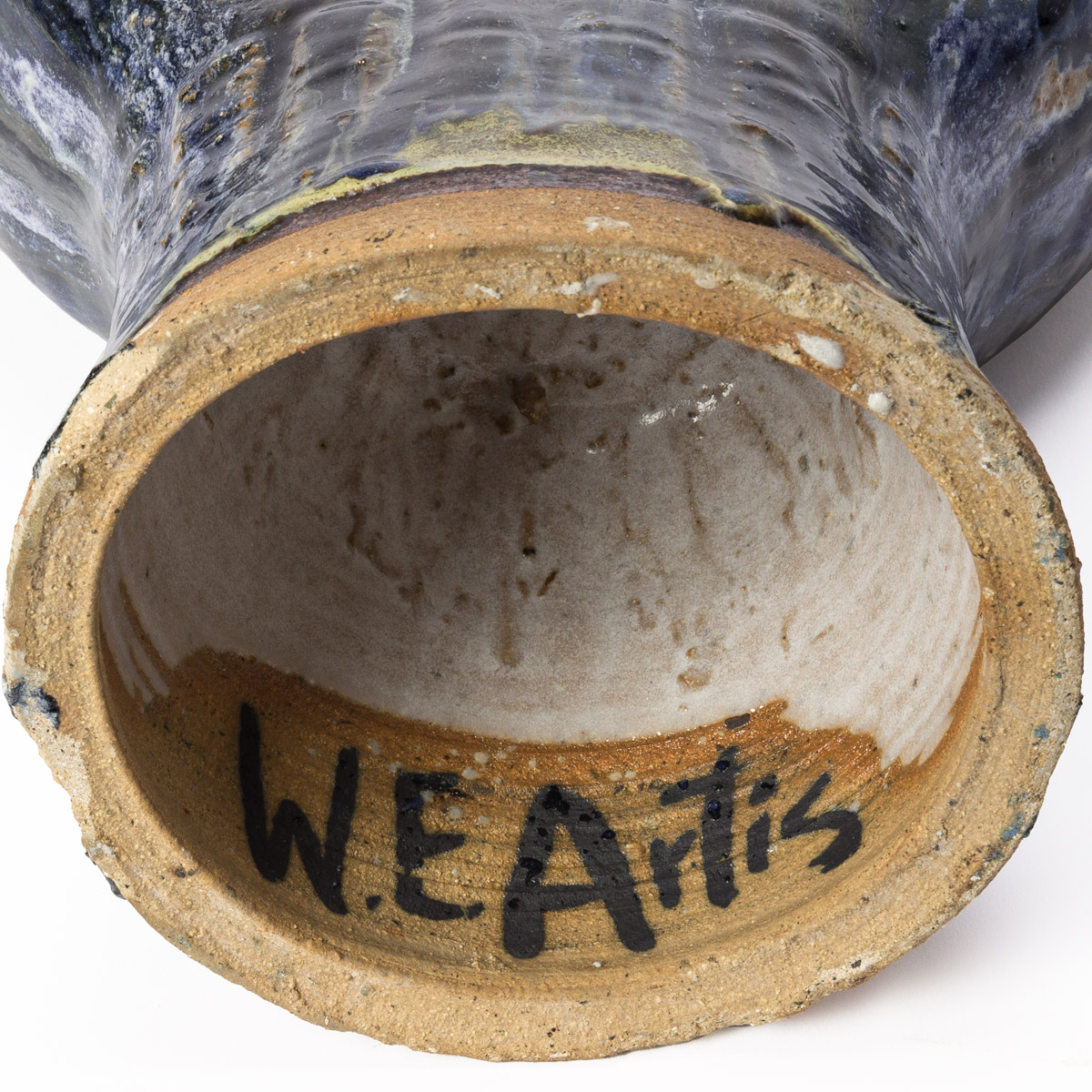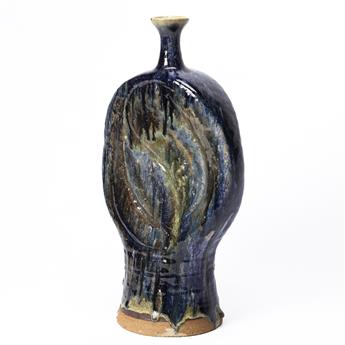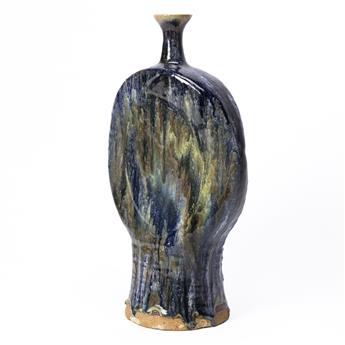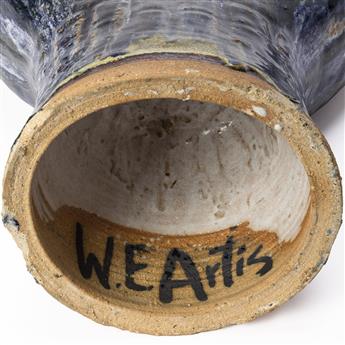Sale 2616 - Lot 64
Unsold
Estimate: $ 5,000 - $ 7,000
WILLIAM E. ARTIS (1914 - 1977)
Untitled (Vessel).
Glazed earthenware, circa 1964-66. 393x228x127 mm; 15 1/2x9x5 inches. Signed in glaze on the underside.
Provenance: collection of the artist; gifted to the collection of Jim and Jeannette Cantrell; private collection. The artist traded this vessel for a painting by his friend, Jim Cantrell. William Artis was teaching at Chadron State College in Nebraska, and Cantrell was teaching at Sidney public school, Nebraska, 1964 - 1966.
Born in Washington, NC, William E. Artis moved to New York during the Harlem Renaissance like fellow North Carolina native artists Charles Alston and Romare Bearden. Artis took private sculpture lessons with Augusta Savage and studied with Robert Laurent at the Art Students League with a Harmon Foundation scholarship. After service in the air force during World War II, Artis studied at the New York State College of Ceramics. He exhibited at the Syracuse Ceramic Nationals in 1940, and 1947 through 1951. He was awarded the Rosenwald Fund fellowship in 1946 and collaborated with the Croatian sculptor Ivan Mestrovic (1883- 1962).
William Artis moved to the Midwest in the early 1950s to teach art and to study the Sioux Indian culture - he taught at the Holy Rosary (now Red Cloud) School on the Pine Ridge reservation in South Dakota. Then he joined the Chadron State College faculty as an assistant instructor in 1954 - then named Nebraska State Teachers College. Artis was professor of sculpture and ceramics at Chadron State College until 1965. He then was an associate professor at Mankato State College in Mankato, Minnesota until 1975. Artis received a retrospective at Fisk University in 1971. William Artis's artwork today is in the collection of the Smithsonian American Museum of Art, the Museum of Nebraska Art, the Schein-Joseph International Museum of Ceramic Art, New York State College of Ceramics at Alfred University and Chadron State College. Schulman p. 134; Nolting pp. 58-59, 89.
Untitled (Vessel).
Glazed earthenware, circa 1964-66. 393x228x127 mm; 15 1/2x9x5 inches. Signed in glaze on the underside.
Provenance: collection of the artist; gifted to the collection of Jim and Jeannette Cantrell; private collection. The artist traded this vessel for a painting by his friend, Jim Cantrell. William Artis was teaching at Chadron State College in Nebraska, and Cantrell was teaching at Sidney public school, Nebraska, 1964 - 1966.
Born in Washington, NC, William E. Artis moved to New York during the Harlem Renaissance like fellow North Carolina native artists Charles Alston and Romare Bearden. Artis took private sculpture lessons with Augusta Savage and studied with Robert Laurent at the Art Students League with a Harmon Foundation scholarship. After service in the air force during World War II, Artis studied at the New York State College of Ceramics. He exhibited at the Syracuse Ceramic Nationals in 1940, and 1947 through 1951. He was awarded the Rosenwald Fund fellowship in 1946 and collaborated with the Croatian sculptor Ivan Mestrovic (1883- 1962).
William Artis moved to the Midwest in the early 1950s to teach art and to study the Sioux Indian culture - he taught at the Holy Rosary (now Red Cloud) School on the Pine Ridge reservation in South Dakota. Then he joined the Chadron State College faculty as an assistant instructor in 1954 - then named Nebraska State Teachers College. Artis was professor of sculpture and ceramics at Chadron State College until 1965. He then was an associate professor at Mankato State College in Mankato, Minnesota until 1975. Artis received a retrospective at Fisk University in 1971. William Artis's artwork today is in the collection of the Smithsonian American Museum of Art, the Museum of Nebraska Art, the Schein-Joseph International Museum of Ceramic Art, New York State College of Ceramics at Alfred University and Chadron State College. Schulman p. 134; Nolting pp. 58-59, 89.
Exhibition Hours
Exhibition Hours
Aliquam vulputate ornare congue. Vestibulum maximus, libero in placerat faucibus, risus nisl molestie massa, ut maximus metus lectus vel lorem.



